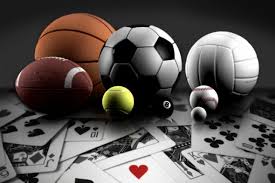
How to Increase Your Chances in Poker Tournaments 2025
As the landscape of poker tournaments continues to evolve, players need to adapt their strategies to stay competitive. Whether you are a novice or a seasoned player, improving your odds in poker tournaments requires a combination of skill, strategy, and psychological insight. To help you navigate the competitive world of poker tournaments in 2025, this article will introduce key strategies you can employ to significantly boost your chances of success, including adopting the right mindset and enhancing your gameplay. For more resources to aid your journey, check out How to increase your chances in poker tournaments 2025 https://mostbet.org.in/pt/.
Understanding the Tournament Structure
Before diving into strategies, it’s crucial to understand the structure of poker tournaments. Different tournaments have varying blind structures, payout distributions, and rules. Familiarizing yourself with these nuances will allow you to tailor your strategy accordingly. For instance, in a tournament with a fast blind structure, you’ll need to adjust your play to avoid becoming short-stacked too quickly. Always pay attention to the starting stack sizes, the blind levels, and how they escalate throughout the event.
Developing a Solid Pre-Tournament Strategy
Your preparation before the tournament begins can lay the foundation for success. Here are some key components of a solid pre-tournament strategy:
- Study Your Opponents: Observing players in practice games or online can provide insights into their playing styles and tendencies.
- Bankroll Management: Ensure you are financially prepared to participate in the tournament without risking your entire bankroll.
- Review Past Performances: Analyze your previous tournament results to identify strengths and weaknesses in your play.
The Importance of Position

Your position at the table can significantly influence your decision-making process throughout the tournament. Understanding the advantages and disadvantages of each position can help you make more informed decisions:
- Early Position: Be more conservative as you have many players to act after you.
- Middle Position: A balanced strategy can be effective here; you can mix up your playstyle based on the conditions.
- Late Position: Exploit your advantageous position by playing a wider range of hands and applying pressure on your opponents.
Adjusting Your Playing Style
One of the biggest mistakes players make during tournaments is failing to adjust their playing style based on the environment and the dynamics at the table. Here are some adjustments to consider:
- Be Aggressive When Necessary: In tournaments, sometimes a more aggressive approach can force opponents into tough decisions and ultimately lead to mistakes.
- Play Tight Early, Loosen Up Later: Especially in the early stages of a tournament, playing tightly will help you survive. As you accumulate chips and the blinds increase, adopting a looser strategy can be beneficial.
- Adapt to Opponents: Pay attention to how your opponents react to different plays and adjust your strategy accordingly to exploit their weaknesses.
The Role of Psychology in Poker
Success in poker is not solely about the cards; psychological factors play a critical role. Here are some psychological aspects to consider:
- Maintaining Composure: Keeping your emotions in check can prevent you from making impulsive decisions under pressure.
- Reading Opponents: Observe your opponents for tells and adjust your strategy if you notice any behavioral patterns that can give away their hand strength.
- Mindfulness: Practicing mindfulness can enhance your focus and decision-making abilities during high-stakes situations.
Leveraging Technology

In 2025, technology will continue to play a significant role in poker tournaments. Here are some ways technology can help improve your game:
- Use of Poker Software: Analysis tools can provide you with comprehensive statistics on your gameplay and help you identify areas for improvement.
- Online Training Courses: Many experts offer online tutorials and courses that cover advanced strategies and techniques to enhance your tournament play.
- Tracking Your Progress: Keeping a detailed log of your tournament results and key hands can help you look back and learn from your experiences.
Networking with Other Players
Building relationships with fellow players can provide you with insight and knowledge that can enhance your game. Networking can offer:
- Discussion Groups: Joining or forming discussion groups can help you share strategies and learn from others’ experiences.
- Mentorship: Seek out more experienced players who can provide guidance and feedback on your gameplay.
- Collaboration: Sometimes, working with others can help you develop unique strategies or approaches that you may not have considered alone.
Continuous Learning and Adaptation
Finally, one of the keys to success in poker tournaments is a commitment to continuous learning. Stay updated on the latest strategies, trends, and news in the poker world. Reading books, watching videos, and participating in forums can all contribute to your growth as a player. Furthermore, always be willing to adapt your strategies based on your experiences and the evolving game.
Conclusion
Increasing your chances in poker tournaments by 2025 will require a multifaceted approach that includes not only mastering the fundamentals and strategies discussed above but also staying psychologically strong and adaptable. By being a proactive player who prepares, learns, and adjusts, you will position yourself as a formidable opponent at the poker table. Remember, success in tournaments doesn’t happen overnight, but with dedication and strategy, you can greatly improve your performance and achieve your poker goals.

